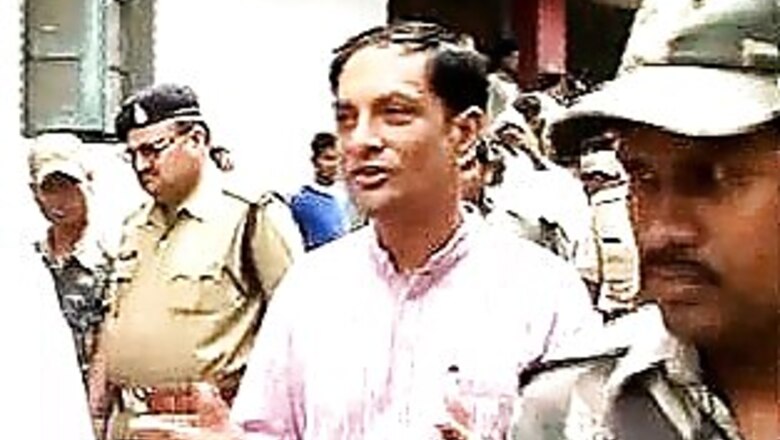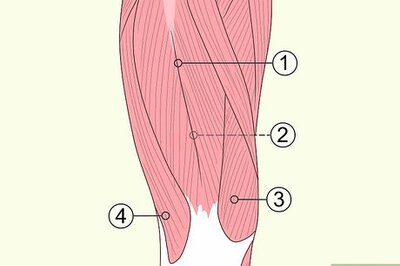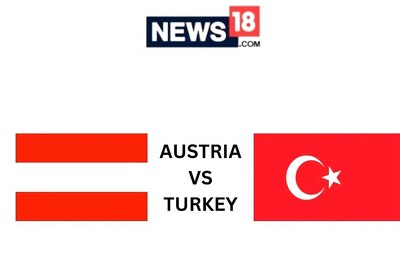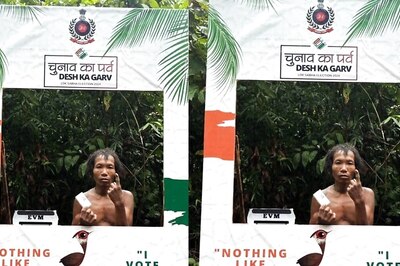
views
Dr Binayak Sen, the human rights activist charged with links with Naxalites, condemns the brutal murder of Jharkhand police officer Francis Induwar by the rebels but believes the state cannot afford to wage a war against the rebels. “I have unreservedly said that this kind of incident is condemnable. But the state violence is also continuing. Maoist violence is condemnable, and we are condemning it,” said Sen, a member of the People’s Union for Civil Liberties. “As Gandhiji said, violence destroys the legitimacy of the state,” said Sen in an interview on telephone to CNN-IBN’s Rupashree Nanda.
Rupashree Nanda: The attacks by Naxalites are increasing and the government is preparing for an all out war. Is the violence set to scale new heights?
Dr Vinayak Sen: Mr Chidambaram (Home Minister) P Chidambaram has denied--he does not want to use the word war. He is saying that they (Maoists) are citizens of India. According to the statement he has made, they (the Government) are not talking about a war. They are talking about a military intervention, but be that as it may there is a situation of military conflict developing in certain areas of the country and we are filled with anguish by this possibility.
A large group of people from all sides has been asking for an abrogation of military confrontation . Military confrontation needs to be replaced by political dialogue and discussion. Specifically in the current situation, what we are asking for is that there should be declaration that violence should cease, and that talks should ensue.
Many people have put out statements, human rights organizations have put out statements both individually and jointly asking for an abrogation of violence and its replacement by political dialogue and peace talk. This is also or appeal and our demand. That military confrontation must cease and talks might ensue.
Rupashree Nanda: Is there a chance that the Maoits will abjure violence?
Dr Vinayak Sen: State violence is also continuing and Maoist violence is also continuing. We want that both kinds of violence must come to an end and peace must ensue. Within the peace there must be dialogue and discussion but the point is peace cannot be a return to status quo ante.
We cannot have a situation in which the widespread displacement of large populations of people is going to be legitimized by that peace. There must be an agreement to a just and equitable solution to the situation on the ground. And until we qualify the kind of peace we are asking for, there is not that much chance of peace becoming effective.
However, what we are saying is both state violence, including structural violence which keeps the poor poor, and direct violence by the state like military initiative that the state is undertaking this is a dangerous and horrifying situation, it is not tenable, and Maoist violence must stop.
Rupashree Nanda: P Chidambaram accuses human rights activists of being soft on Naxal violence.
As human rights workers, we have been asking for an end to all violence. We are consistently saying that all violence is illegitimate, that the resolution on questions through the means of violence is an illegitimate solution.
For instance, after the death of Francis Induwar, I have unreservedly said that this kind of incident is condemnable. But the state violence is also continuing. Maoist violence is condemnable, and we are condemning it.
We do not legitimize Maoist violence but this violence must be seen in the context of the state violence. Maoist violence is by a desperate people who are simply trying to survive, and who are being forcibly removed from their access to those resources which help them to survive.
Manmohan Singh himself has said that the Maoists have their support among poor and expropriated people--and they have their support because they have to survive. The problem must be addressed at the roots. Violence is a symptom.
Rupashree Nanda: How do you think can the Maoists can be brought on the table to talk?
Dr Vinayak Sen: The whole of society must raise its voice against violence. We are appealing to the whole of society, please raise your voice against violence. We are appealing to the government, we are appealing to the Maoists, but we are also appealing to the people. All of us jointly need to raise our voices against the legitimacy of violent confrontation. Only by bringing violence to a stop, any kind of peaceful solution can emerge.
Rupashree Nanda: What will be consequences of the military confrontation?
Military confrontation will not yield any solution--solutions will emerge only through cessation of violence and through political dialogue.
Rupashree Nanda: There is a perception that state governments and central governments are using all the instruments in their hands to silence reporters and activists--issuing notices to journalists in Chhattisgarh, jailing activists in Bengal and Orissa. Is this a pan-Indian phenomenon now.
Dr Vinayak Sen: This is part of the pattern of globalisation. It is happening all over the world. This is part of a concerted pattern in which the resources of the poor are being expropriated in order to be handed over to the rich and the state is overtly in this process and standing as guarantor to this process and so any kind of dissent is no longer being tolerated--and anyone who speaks against this process will be punished for it.
This is the meaning of the kind of laws that have been promulgated in recent times and I am afraid that there is a lot more suffering that has to be endured on all sides as a result of this process.
Rupashree Nanda: Why isn’t sufficient there outrage and anger to systematic jailing and intimidation of journalists and activists? I fear that the middle classes are more accepting of intolerance and illiberality?
Dr Vinayak Sen: I don’t think that there is an acceptance. There is a widespread sentiment against the termination of dissent. Democracy will have to prevail. People will support the claims of democracy.
The only thing is that people who stand to benefit from increasing polarization of resources will probably support the processes that enable this polarization to continue. For the middle classes it will take them some time to educate themselves on the dynamics of the process.




















Comments
0 comment